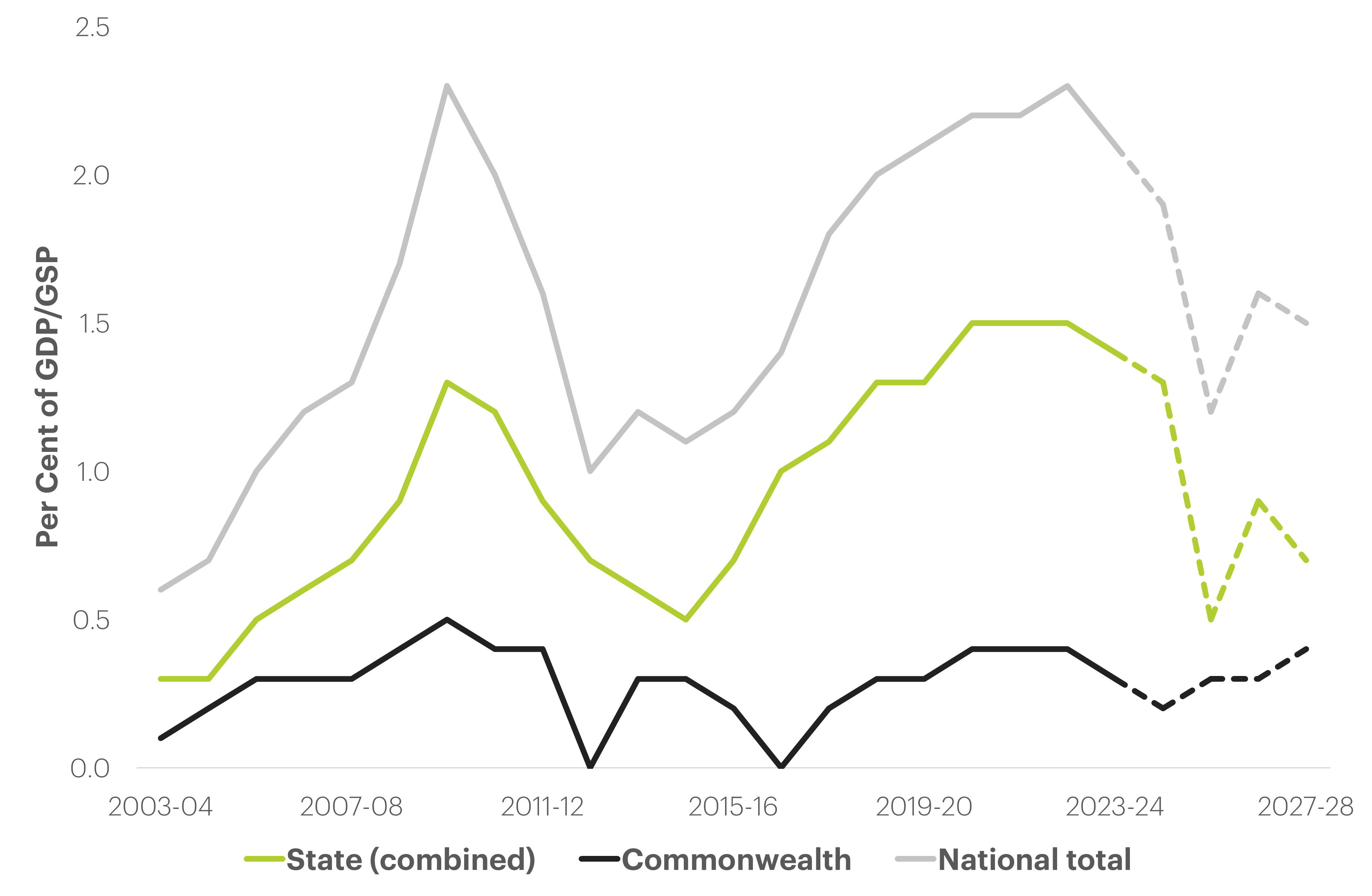The Business Council of Australia today released its Building Australia's Tomorrow report, which sets out a comprehensive roadmap to ensure Australia's infrastructure keeps pace with the nation's needs and lifts productivity.
The BCA's report calls for changes to be made to the EPBC Act to streamline and speed up decisions on projects, which is critical to building more homes, expanding opportunities in critical minerals and attracting more investment into major projects.
Business Council Chief Executive Bran Black said the report highlights how targeted, well-planned and consistent investment and reform can lift productivity, create jobs and sustain growth across the economy.
"Quality infrastructure is the foundation of a modern economy because it connects people and markets, underpins housing supply, delivers services people need, supports new industries and secures Australia's energy and digital future," Mr Black said.
"Our report makes clear, we need to harness private investment, fix the EPBC Act, cut red tape, and make every infrastructure dollar go further. That's how we build the foundations for the next generation of growth."
"Whether it's housing, renewable energy, health and care services or technology infrastructure, the EPBC system is delaying investment into projects we need for the future."
The report sets out four priority areas for reform and investment, which include:
Well planned, long-term investment
- Governments must maintain a steady and sustainable pipeline of infrastructure to avoid boom-bust cycles.
- Investment decisions should be guided by independent, evidence-based business cases reviewed by Infrastructure Australia or state and territory equivalents.
Stronger private sector partnerships
- Governments should leverage private capital through proven models such as asset recycling and public-private partnerships.
- We must prioritise appropriate risk allocation, with a more collaborative approach to contracting.
Improving industry productivity
- Reform planning and environmental permitting processes, like the EPBC Act, with the aim of more efficient and streamlined approvals.
- Government and industry must adopt new technology, including building information modelling and new methods of construction such as prefabrication.
- Government must also address skills shortages and stamp out unlawful activity, particularly by the CFMEU.
Unleashing innovation
- Modernisation must occur in road funding and health service delivery.
- There should be a refresh of the unsolicited proposal processes to make sure they are encouraging investment.
The private sector plays a central role in infrastructure delivery and financing, which in financial year 2024-25 accounted for almost 80 per cent of the total $105 billion in national infrastructure expenditure.
Organisation for Economic Co-operation and Development research shows that $1 billion of public infrastructure investment in Australia increased gross domestic product by around $1.1-$1.3 billion after two years.
"Government infrastructure spending has peaked (see Figure 1), and action is needed to make sure there's a stable investment pipeline that avoids boom-bust cycles which hollow out capability and jobs in the construction sector," Mr Black said.
The report underscores the importance of supporting the energy transition, digital infrastructure rollout, and AI-enabled industries, all of which depend on efficient approvals and a skilled workforce.
It also outlines the importance of better utilising existing infrastructure, as well as ensuring that the private sector is able to deliver on the new types of infrastructure needed for the future, such as data centres and telecommunications assets.
"Governments can't do this alone, so we need more efficient planning settings and regulations that enable better access to private sector expertise, and a focus on getting new infrastructure and investment right to create the pipeline of projects we need for the future," Mr Black said.
Figure 1: Government net capital investment on infrastructure







